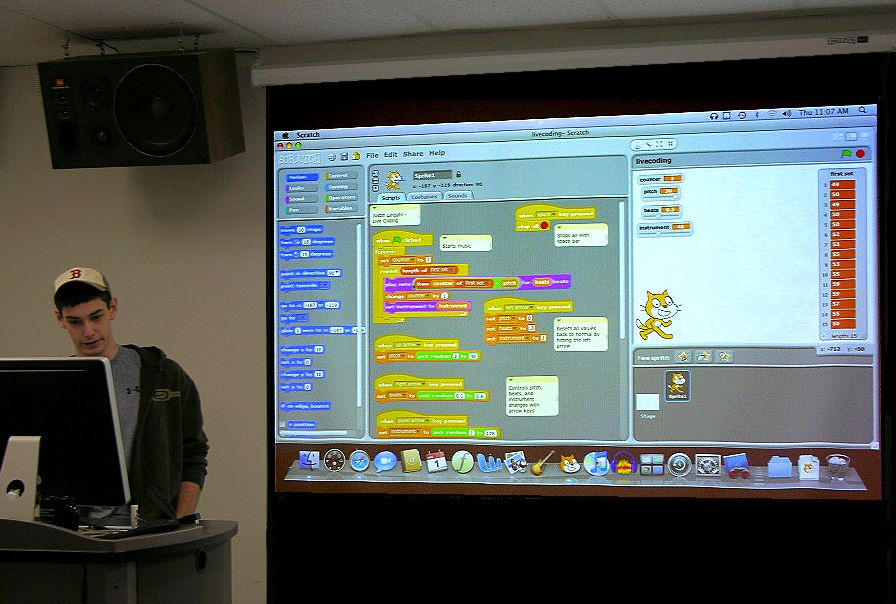

Depts. of Music and Computer Science
Computational Thinking through Computing and Music
an interdisciplinary NSF TUES project
 Now Available
Now AvailableComputational Thinking In Sound
by Gena R. Greher and Jesse M. Heines
Oxford University Press, April 2014
Scenes from the June 21-22, 2012, workshop
Our series of workshops is now completed.
Thank you to the 178 educators who attended our workshops over the last three years:
| 123 | from higher ed |
| 55 | from K-12 |
Jesse, Gena, and Alex
Our goal is to develop and disseminate ways to enhance students’ grasps of computational thinking by engaging them in fundamental concepts that unite computing and music. Our approach leverages students’ near universal interest in music as a context and springboard for engaging in rich computational thinking experiences. Prior work in an NSF CPATH project showed this approach to be effective at creating value in both discipline-specific courses for Computer Science and Music majors, as well as General Education courses for all majors. This project will develop additional activities to deepen students’ experiences in computing and music, and explore additional techniques for evaluating learning through those activities. The project will also disseminate our work through workshops for pairs of interdisciplinary faculty at 4- and 2-year colleges.

Our materials teach concepts such as modularization by breaking songs down into their components, looping and subroutines by noting where musical phrases are repeated intact and with small variations (requiring parameters), logic flow by creating musical flowcharts, and algorithms by writing programs that generate music. New materials will explore ways to teach more advanced computing concepts such as threads and synchronization by writing programs that play multiple parts simultaneously and use various Application Programmer Interfaces (APIs), allowing us to combine software platforms into systems that to do more than is possible by one alone.
A major component of this project is the sharing of our techniques and materials through sponsored workshops at conferences and on-site at universities where participants attend as a pair: at least one from Computer Science (or another science or engineering department) and one from Music (or another arts department). This will ensure that collaborations begun in the workshops have a foothold on sustainability when the participants return to their own institutions.